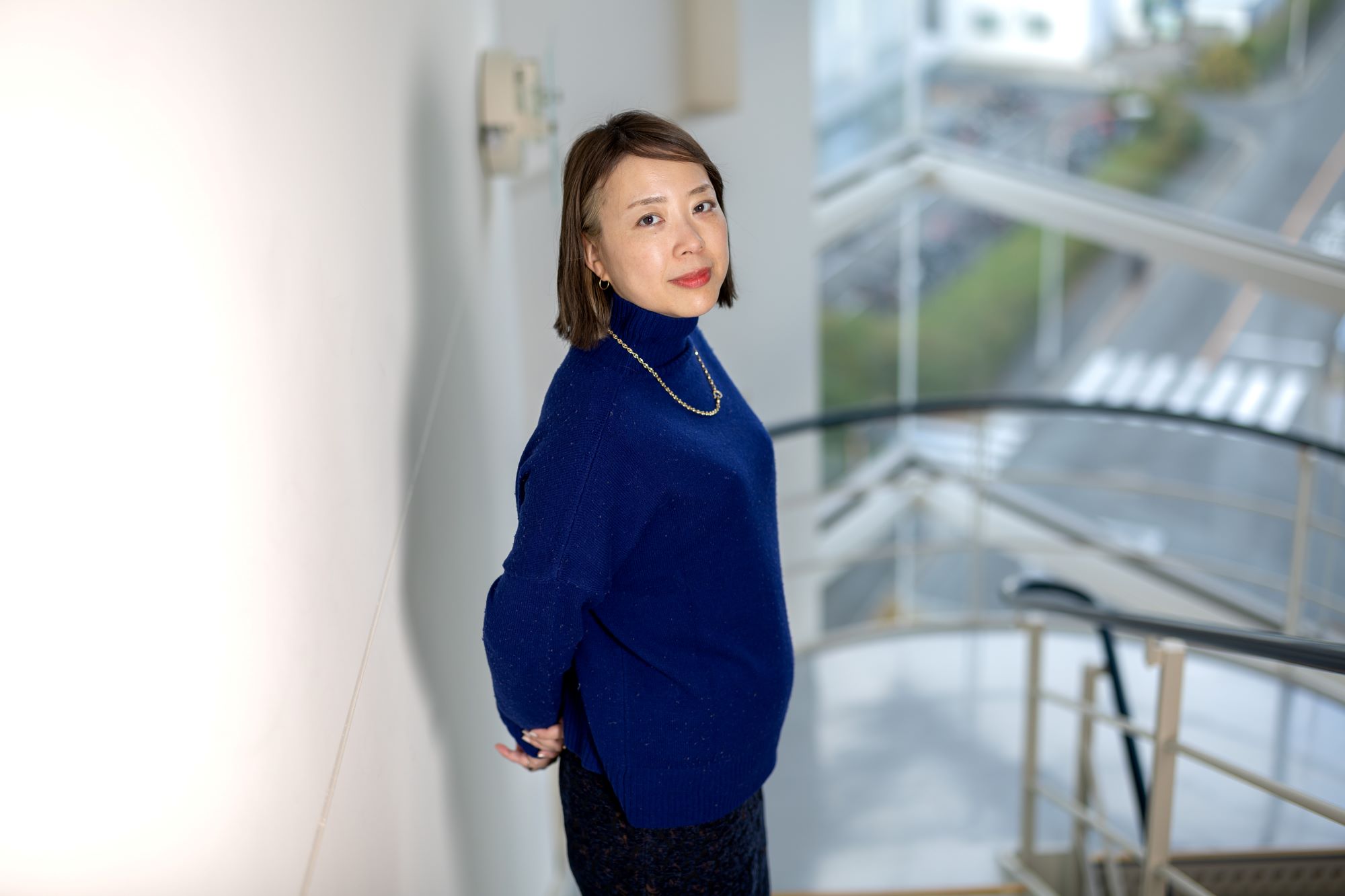
Dr. Yuki Arase, Associate Professor, Graduate School of Information Science and Technology
"Learning more about saying less: Information science explores advanced linguistic abilities through paraphrase generation and recognition"
Dr. Yuki Arase joined Microsoft Research in Beijing, China, right after completing her PhD course. She was encouraged at work to pursue her own interests regardless of her PhD project, which led her to address ‘language,’ as we humans use it in our everyday lives and can recognize the results of her research. Dr. Arase was appointed as associate professor at Osaka University in 2014. She commits to serve as a member of the Association for Communicational Linguistics, the most prestigious global academic association for linguistics, as well as related associations in Japan.
Contributions to Human-to-Human and Human-to-AI Communication

Dr. Arase specializes in natural language processing, a field that aims to enable computers and AI to process language in the same way that humans do, with our advanced linguistic abilities such as our ability to express the same phenomena or idea in a variety of linguistic expressions. The automatic recognition of such paraphrased expressions by a computer and AI and the identification of the parts of a sentence with matching meanings are expected to provide important clues to elucidate the mechanisms by which humans interpret and understand language and sentences.
The core of Dr. Arase’s primary pursuits is paraphrase generation and recognition. Paraphrasing requires various forms of monolingual text transformations, such as text simplification, rewriting, and style transfer.
She collects paraphrase pairs and trains neural networks with those paraphrases so that they can learn how the word can be replaced or how paraphrases can be created by changing the structures of the sentences. However, existing datasets of paraphrase pairs for the training of neural networks are limited, making it hard to collect an adequate number of paraphrases. Thus, she now addresses this issue as her research agenda, using machine translation to synthesize a large amount of paraphrase pairs through round-trip translation, where an English sentence is translated into another language and then translated back to English.
Her techniques for generation and recognition of paraphrasing are currently applied to the following three areas:
Education – Dr. Arase has been engaged in the development of a system to support English language teaching in interdisciplinary collaboration with specialists in English language education. For example, paraphrasing difficult sentences into easier ones can help students learn English at a level appropriate to their own, which can be used to develop materials for learning English.
Collection of knowledge on drugs through reported patient outcomes – Patients’ weblogs are critical data for understanding the effectiveness of drugs. Dr. Arase developed an automatic recognition system on the effectiveness of drugs through paraphrase generation of languages and sentences in patients’ weblogs, which are quite diverse.
Paraphrase recognition – Dr. Arase has developed technology to automatically identify the part that was paraphrased, which is unique as so far only the implementation of paraphrasing can be detected, not the exact portion that was paraphrased. This technology can be applied to ChatGPT to detect portions of its answers that have not previously been mentioned.
As for her future research ambitions, she wishes to deepen her academic work in advancing information science for paraphrase generation and recognition, the core of her research, and aspires to develop technologies that allow computers/AI to understand and read between the lines of what humans say or write and paraphrase beyond literal meaning. She believes her achievements in the development of this technology can contribute to resolving diverse social issues.
What does a "future society where life shines brightly" look like to you?
“I believe that sooner or later, the barrier of ‘language’ will disappear. Even now, we can communicate regardless of language due to the advancement of machine translation. Despite needing to maintain the present economic scale, Japan is facing a decline in its working population. Developing this technology will allow us to interact and live together with robots. I would like to contribute to such a future society.”
Further information:
https://yukiar.github.io/index_jp.html
https://researchmap.jp/arase?lang=en
Text: Saori Obayashi/Edit: Christopher Bubb